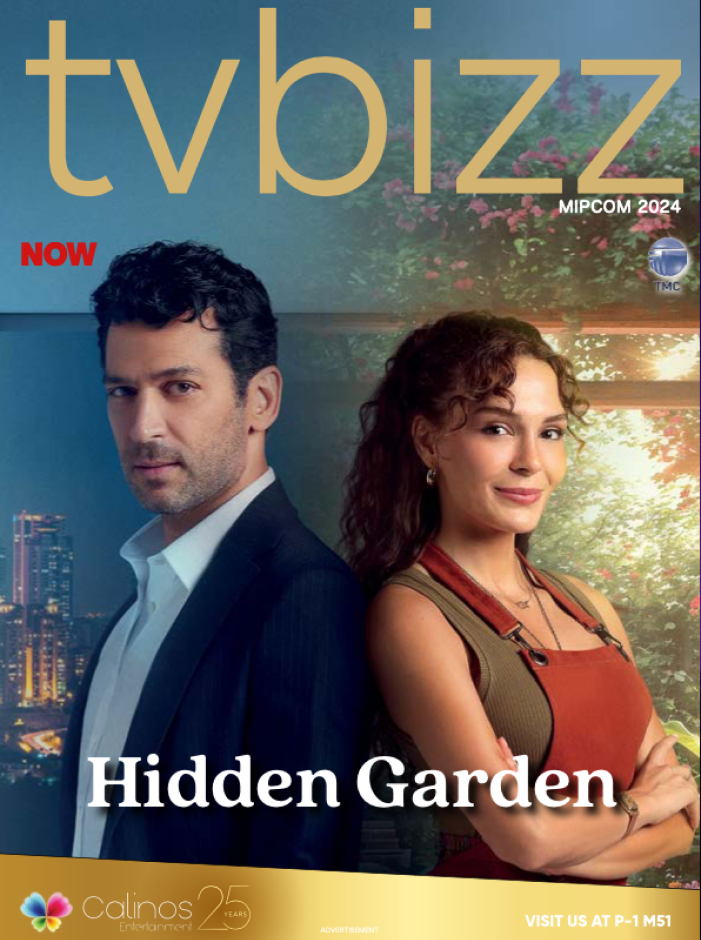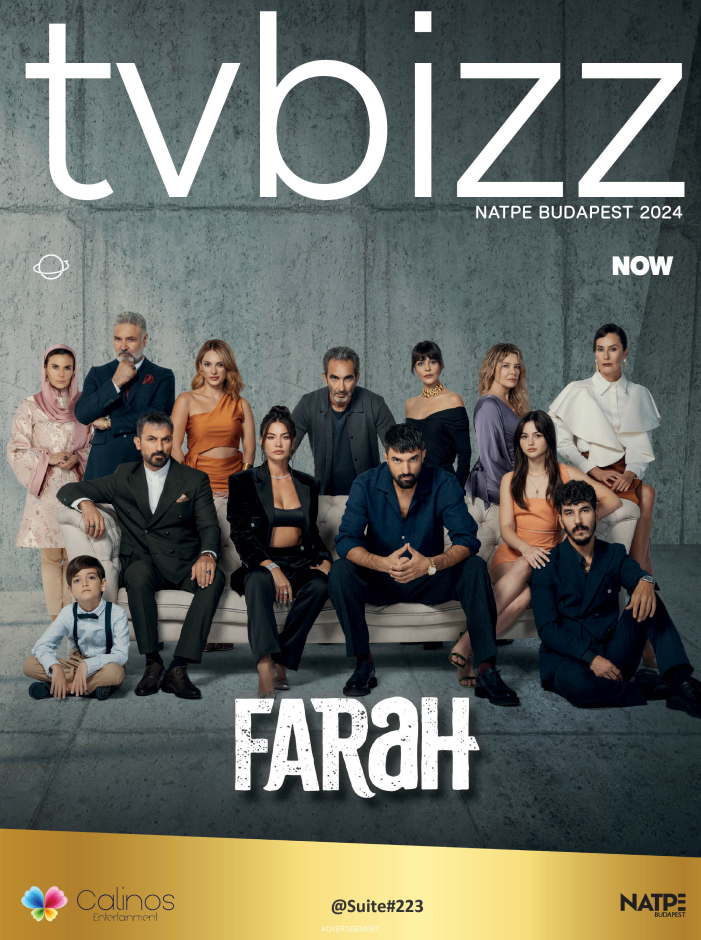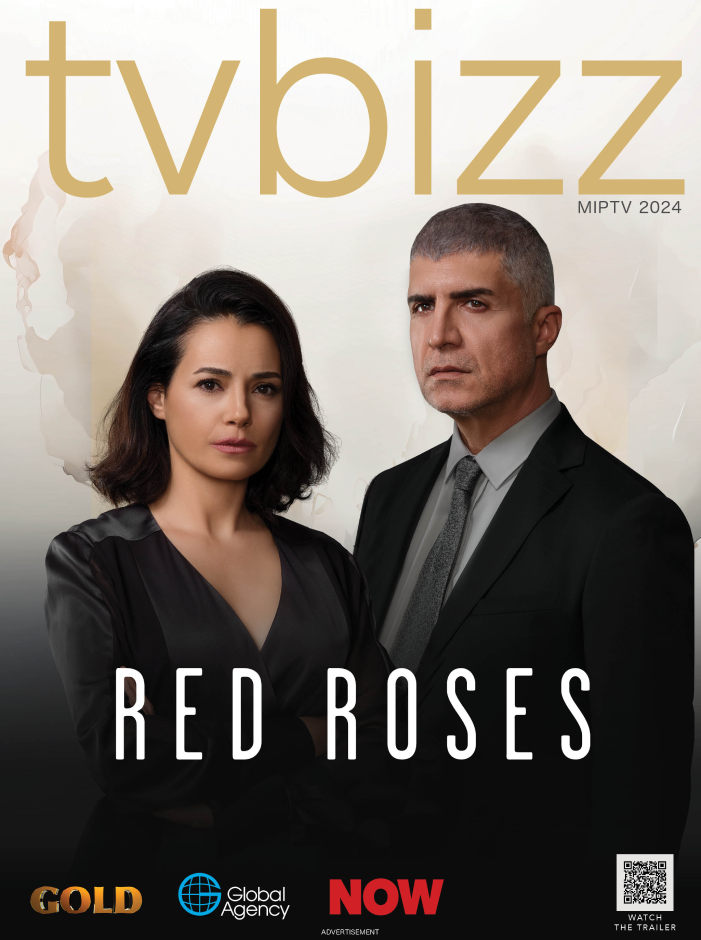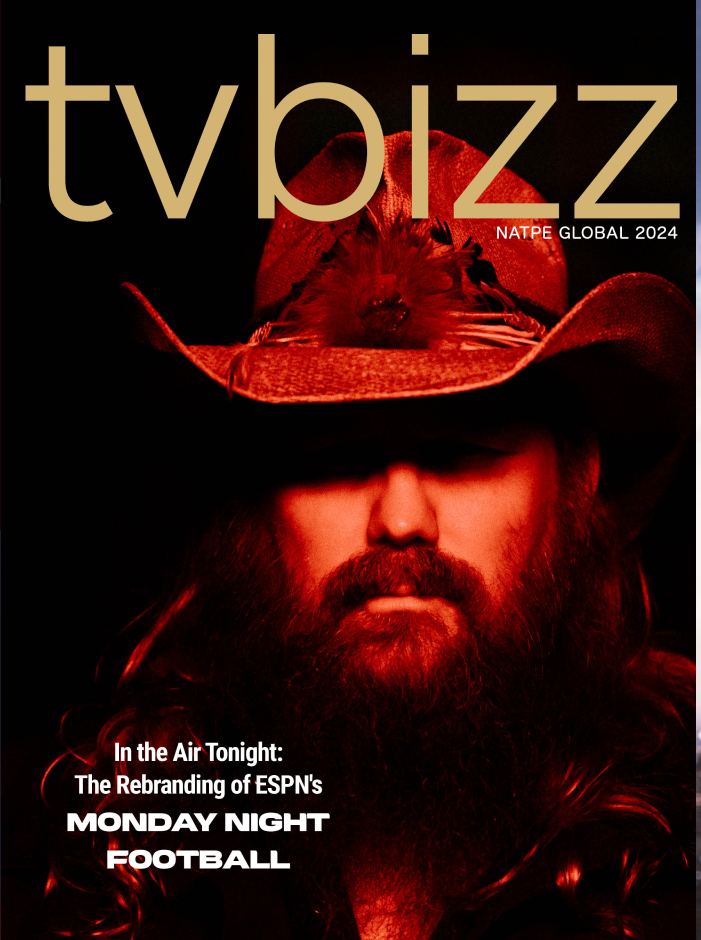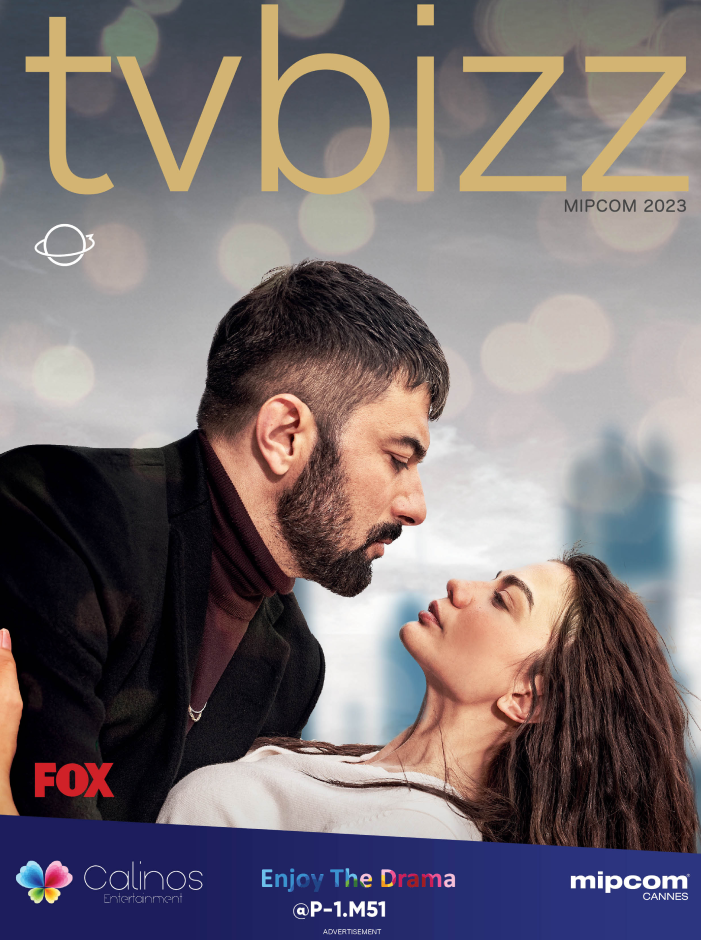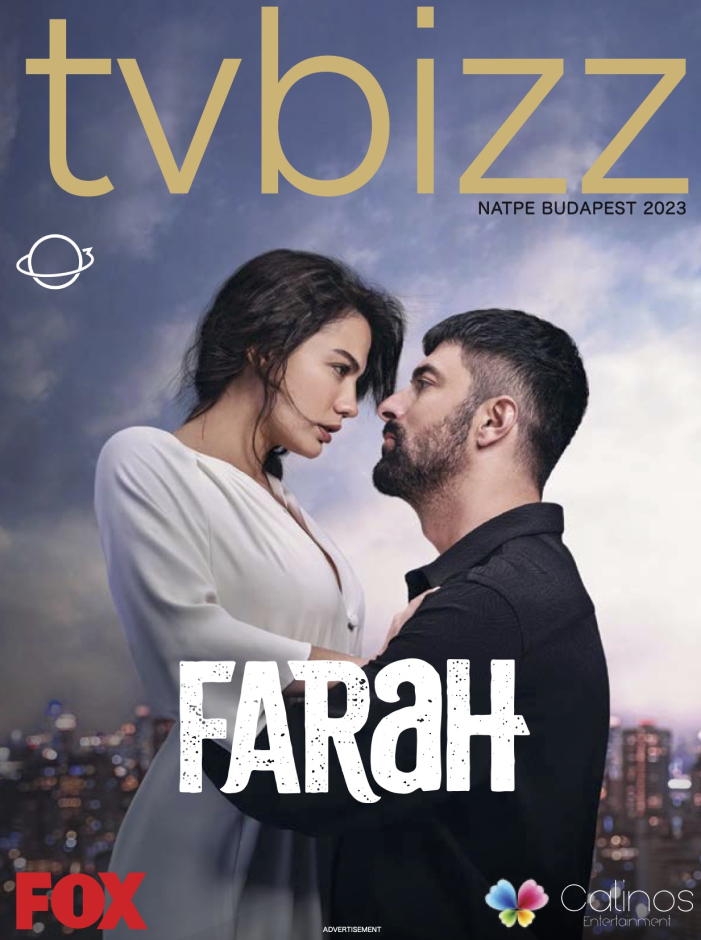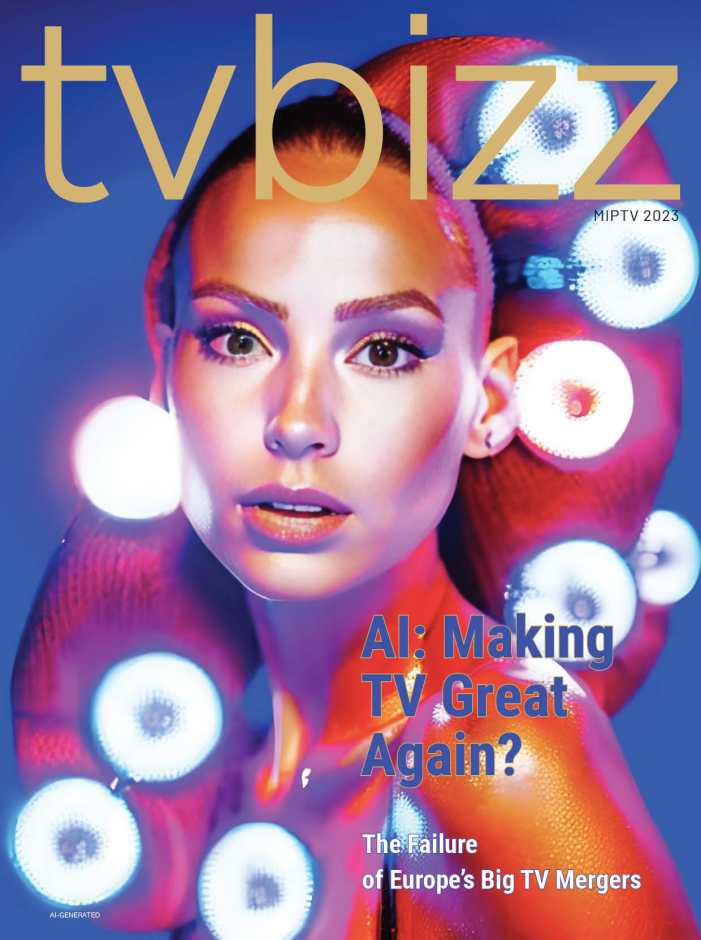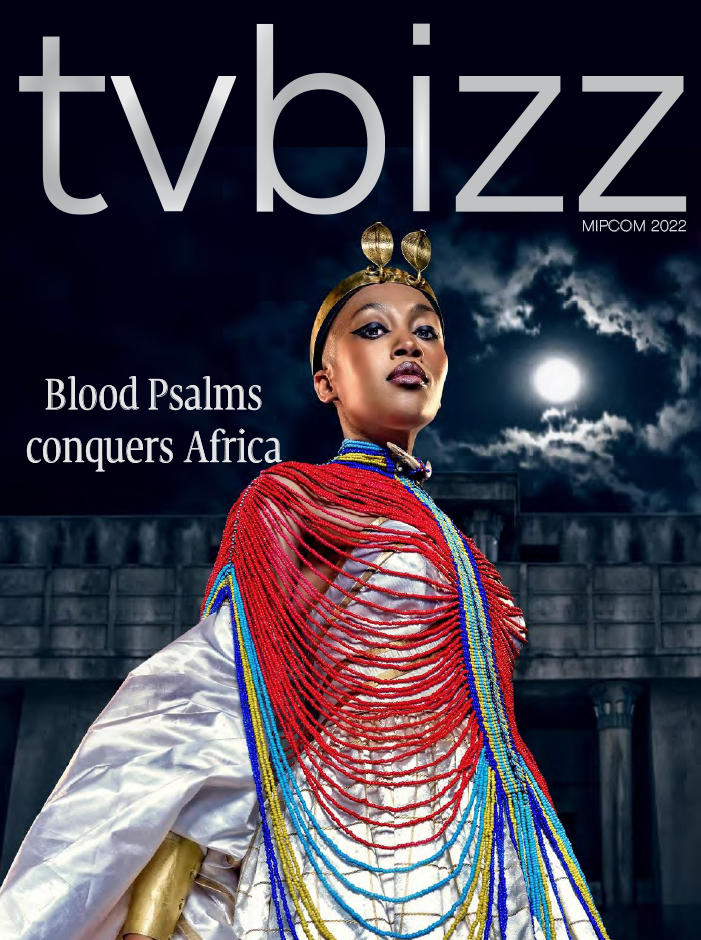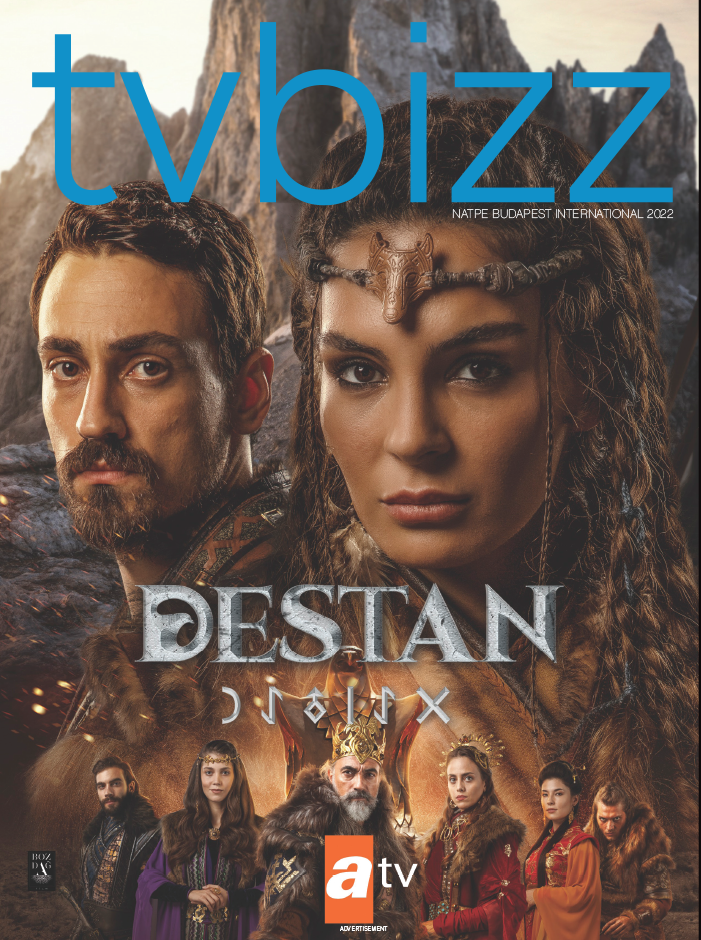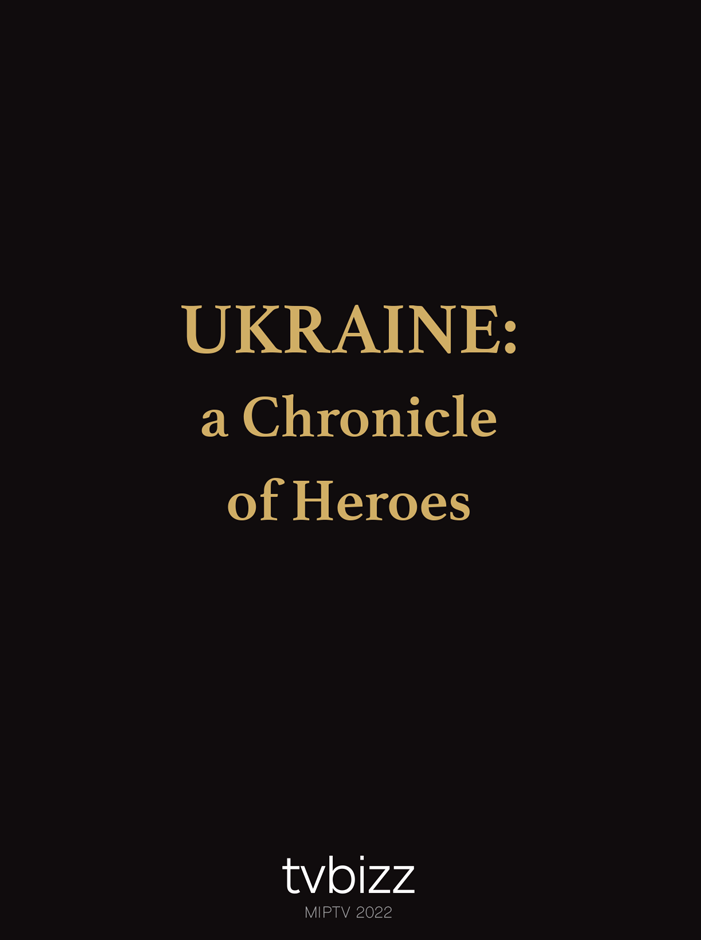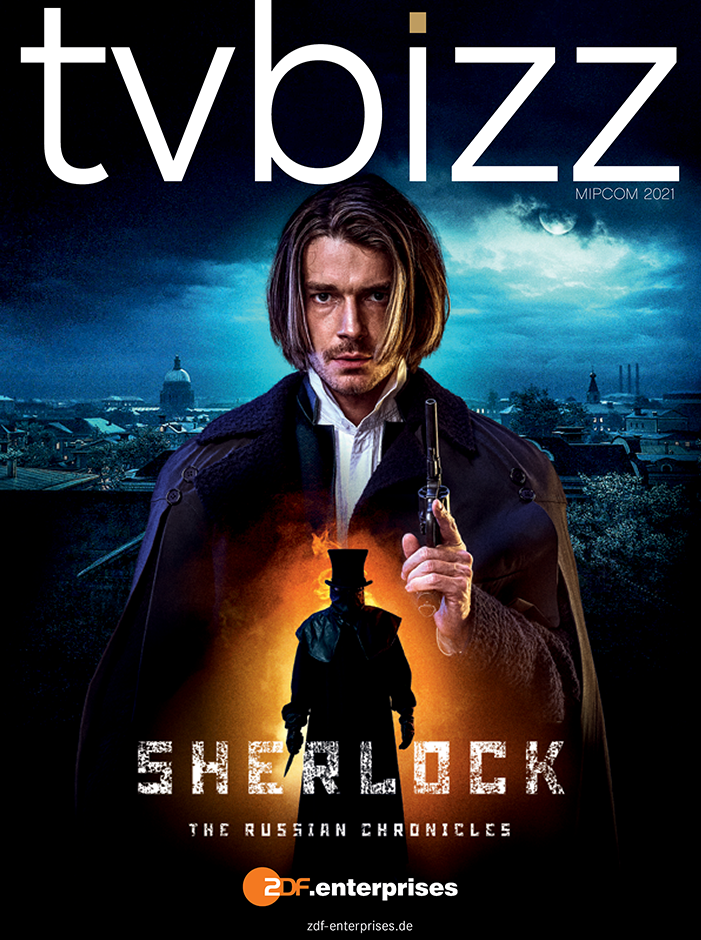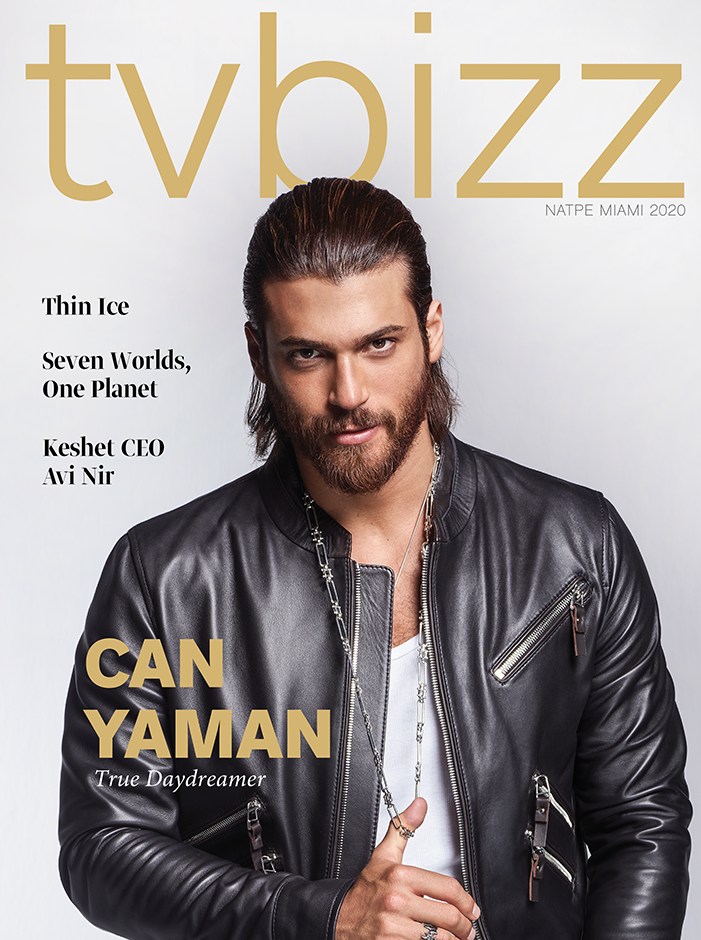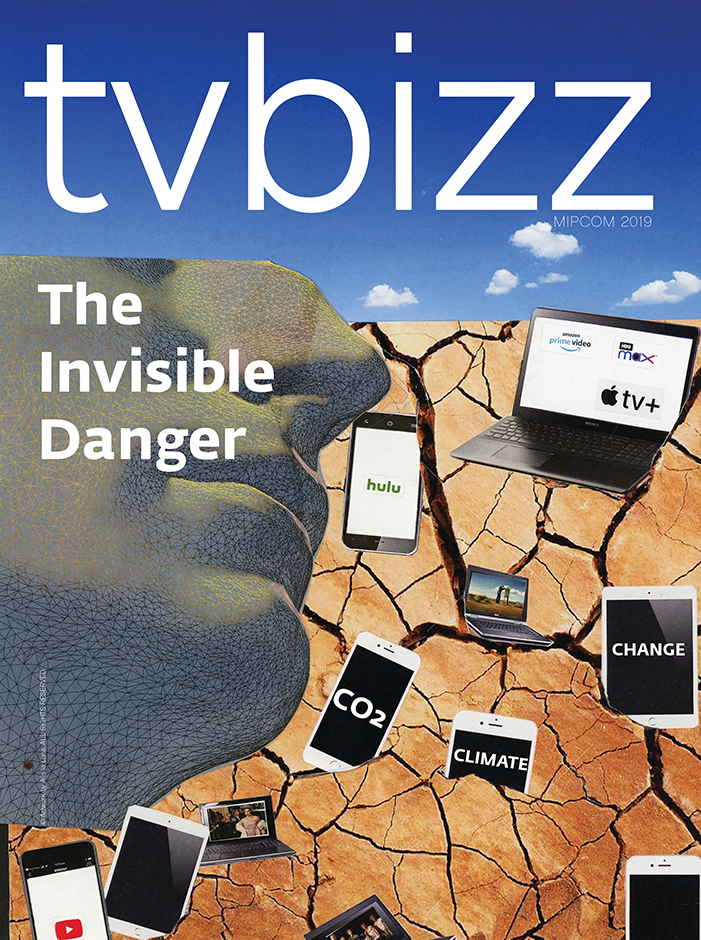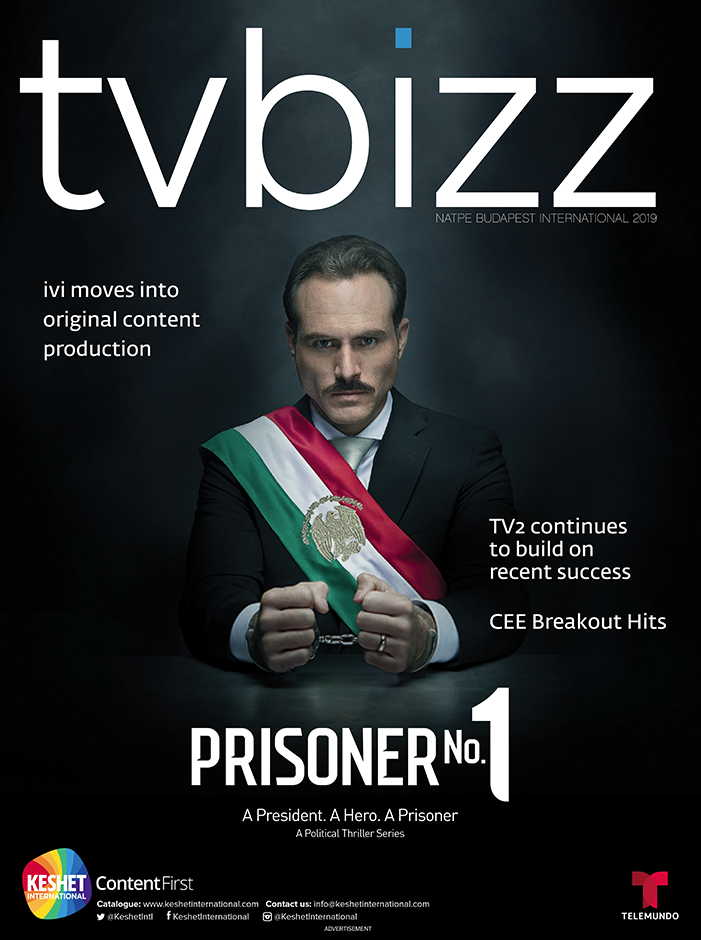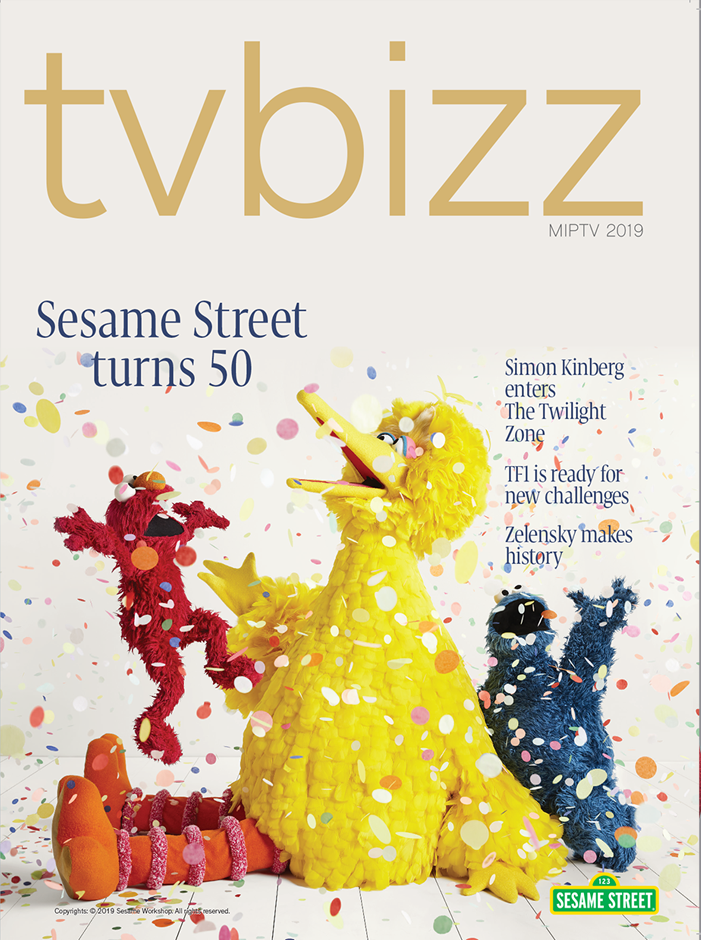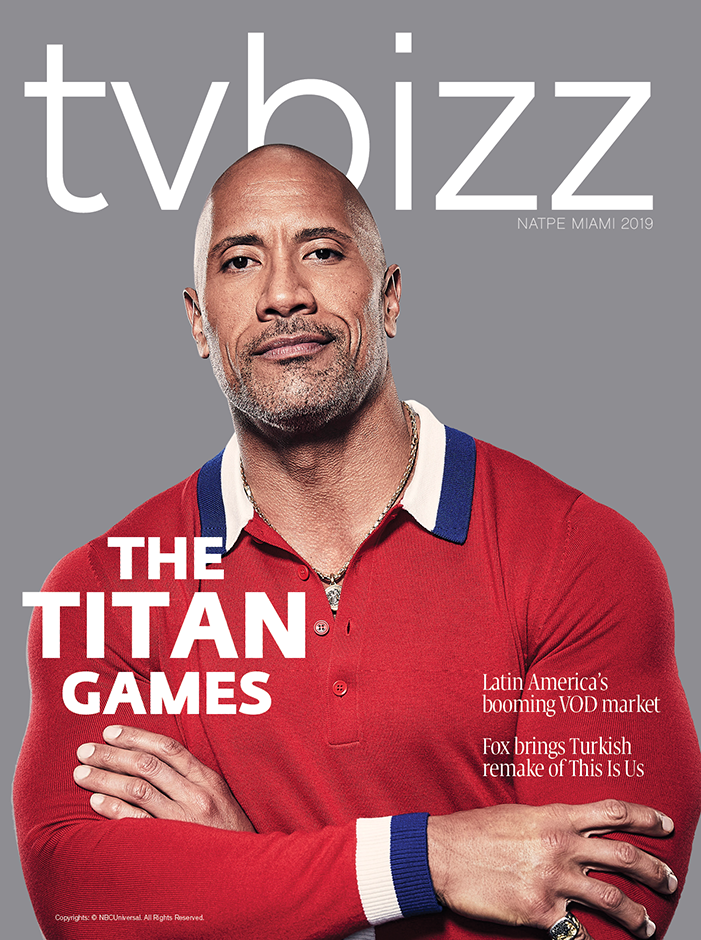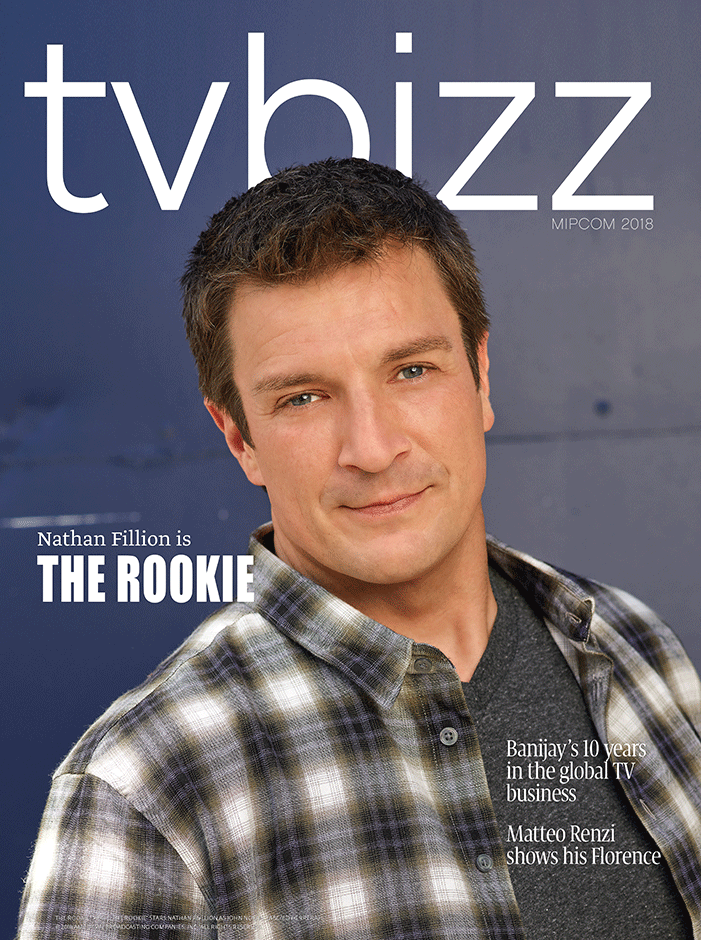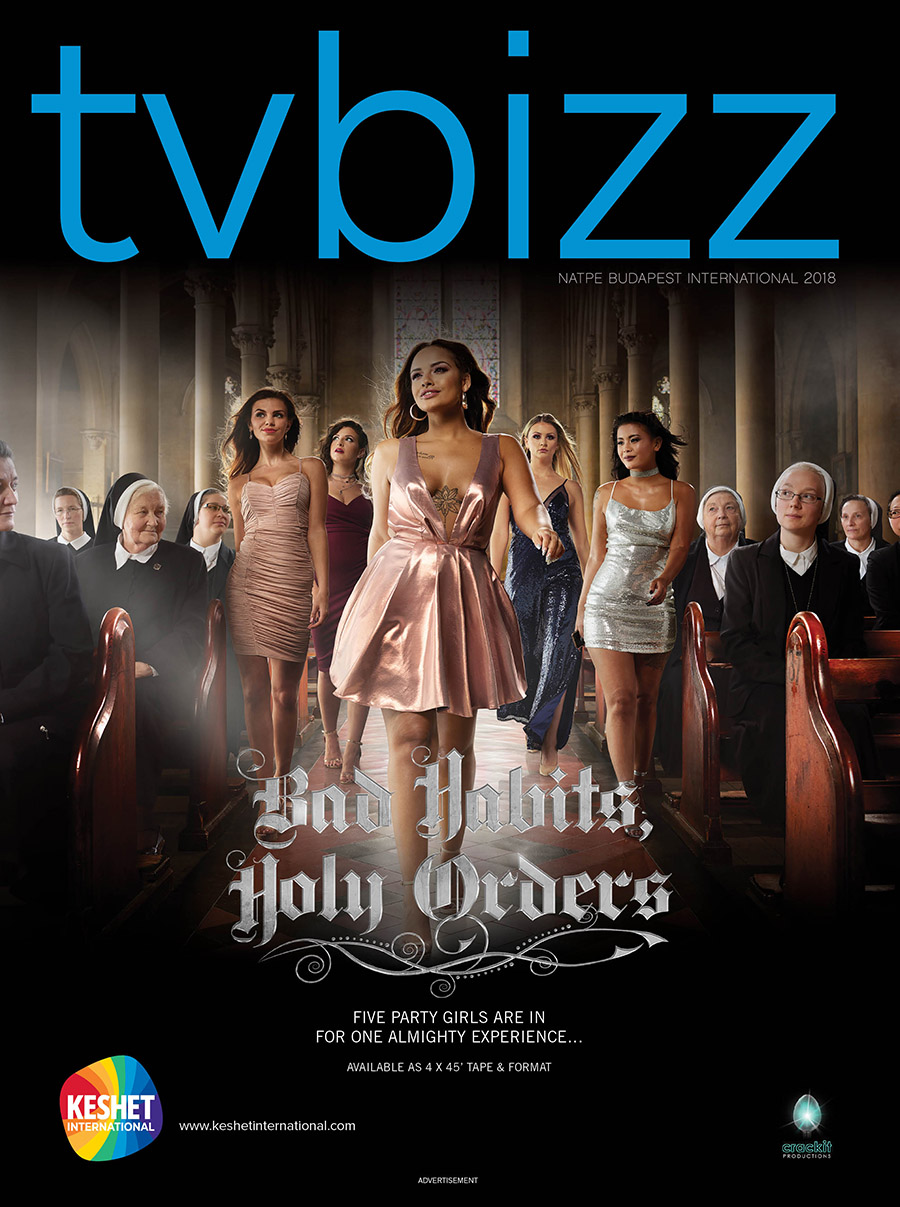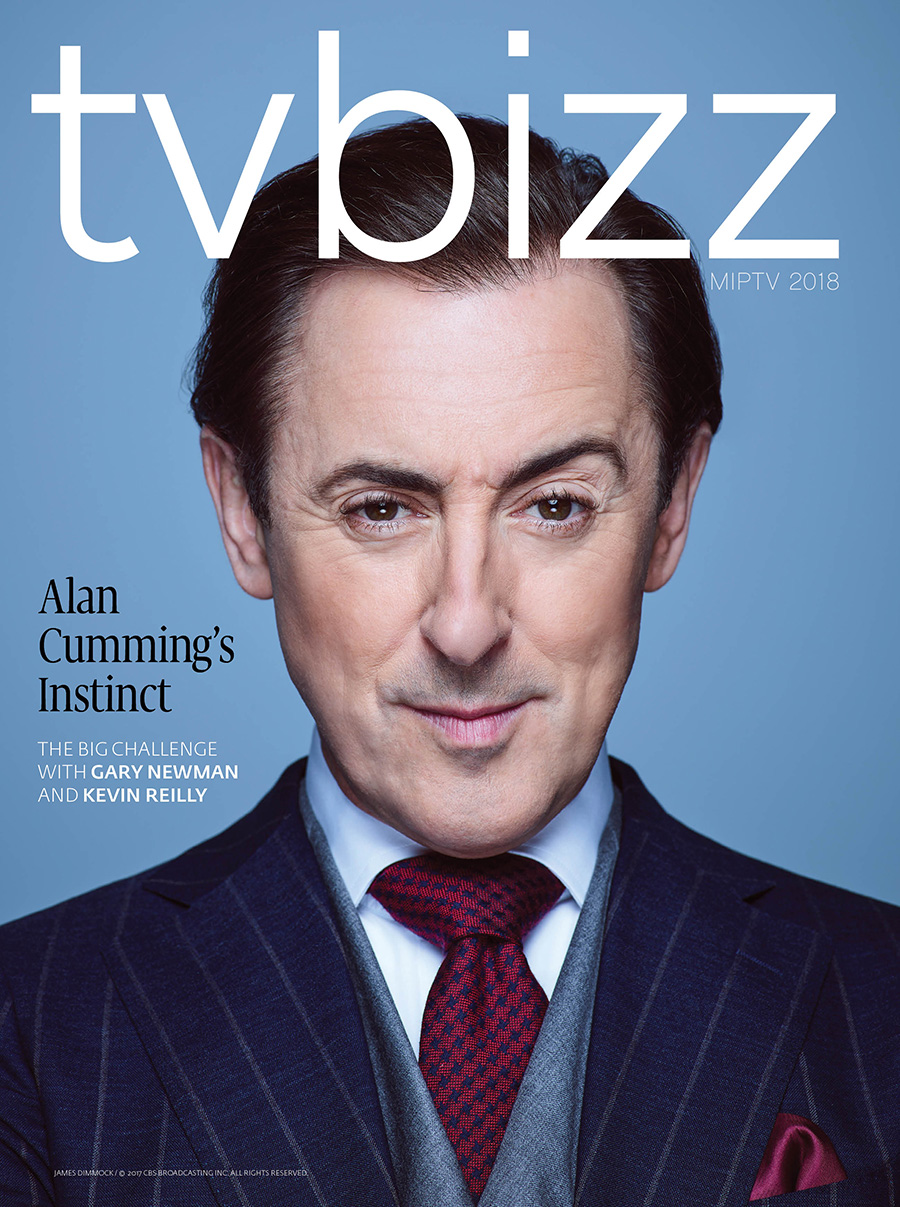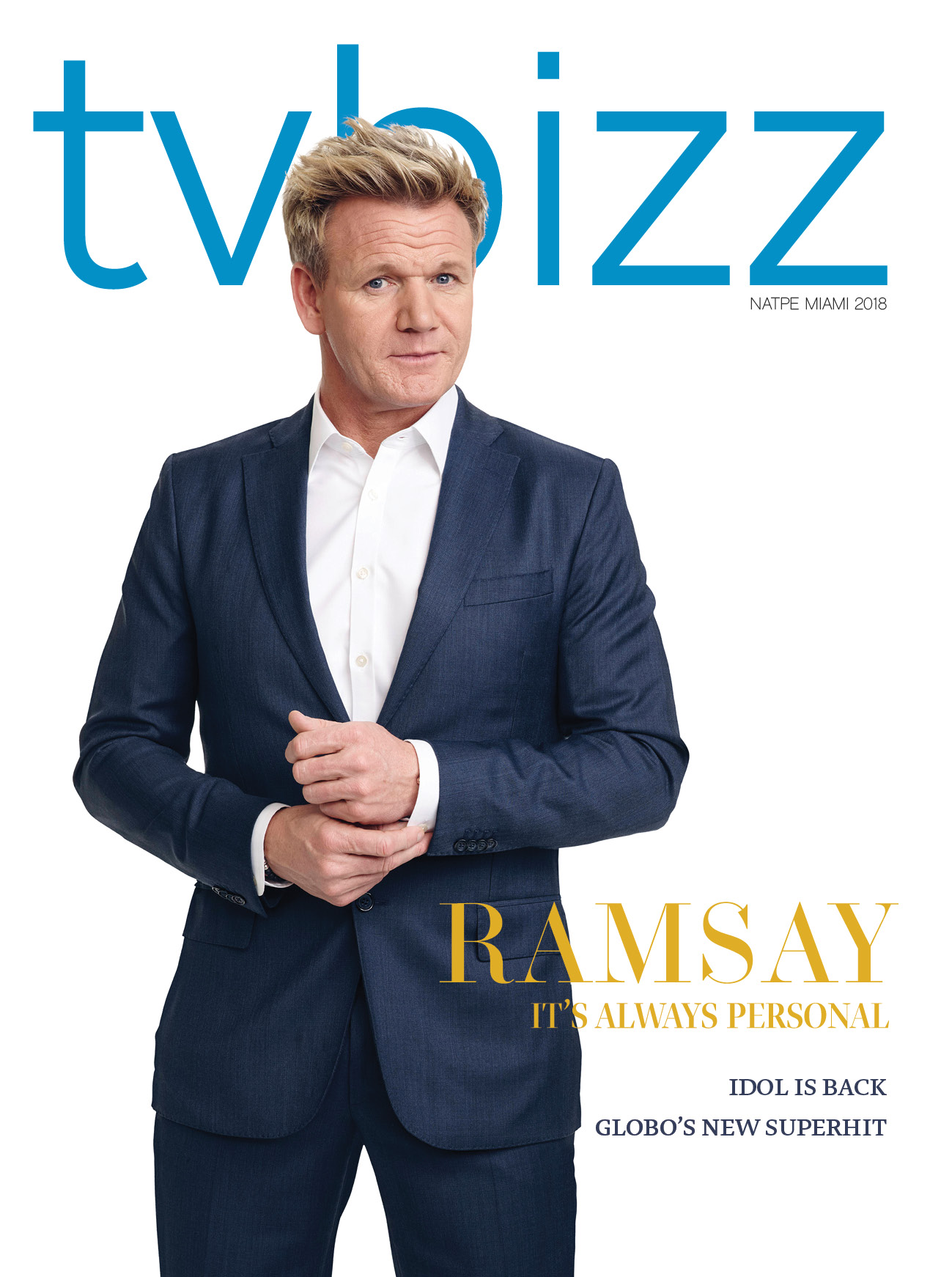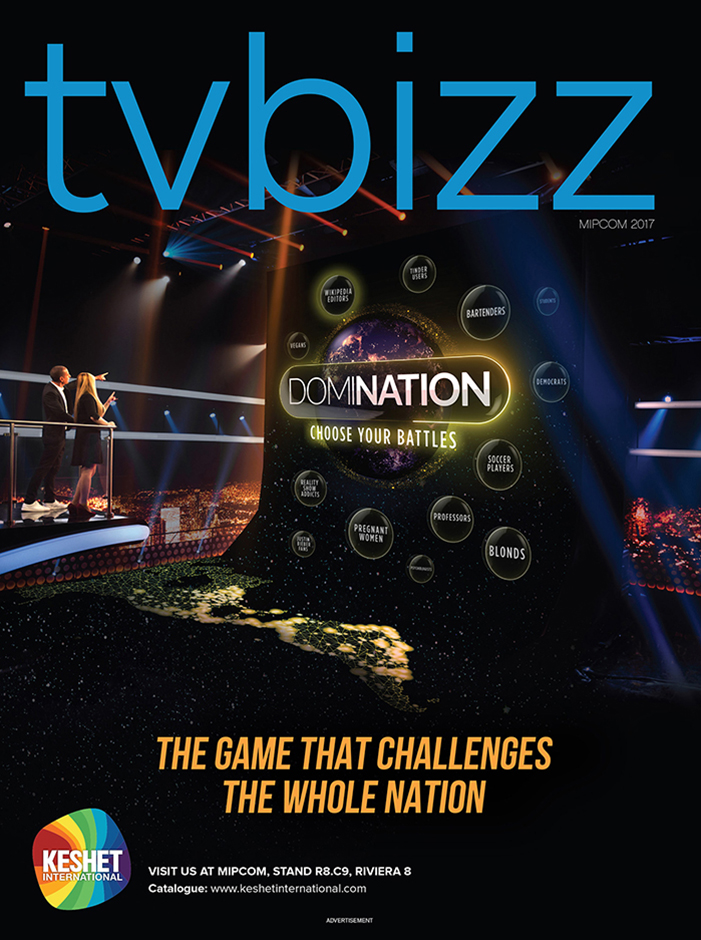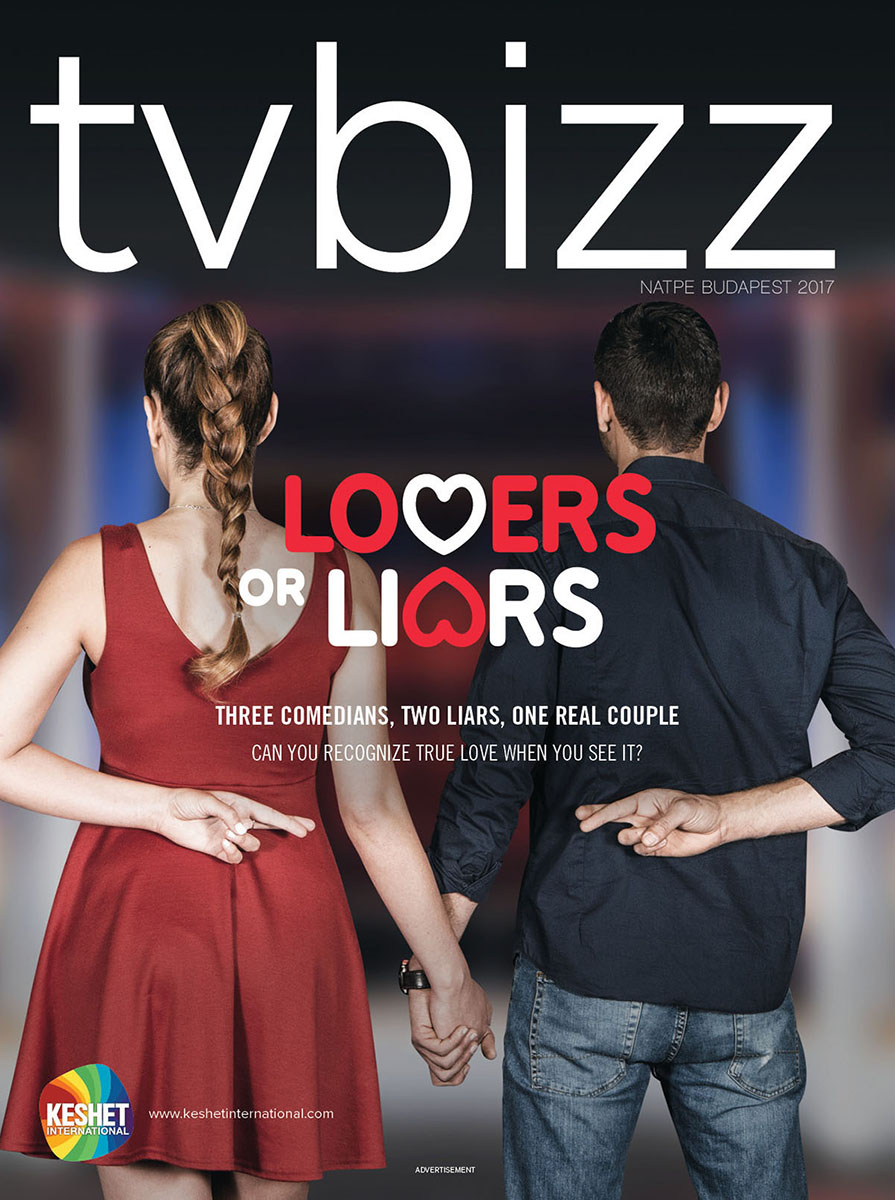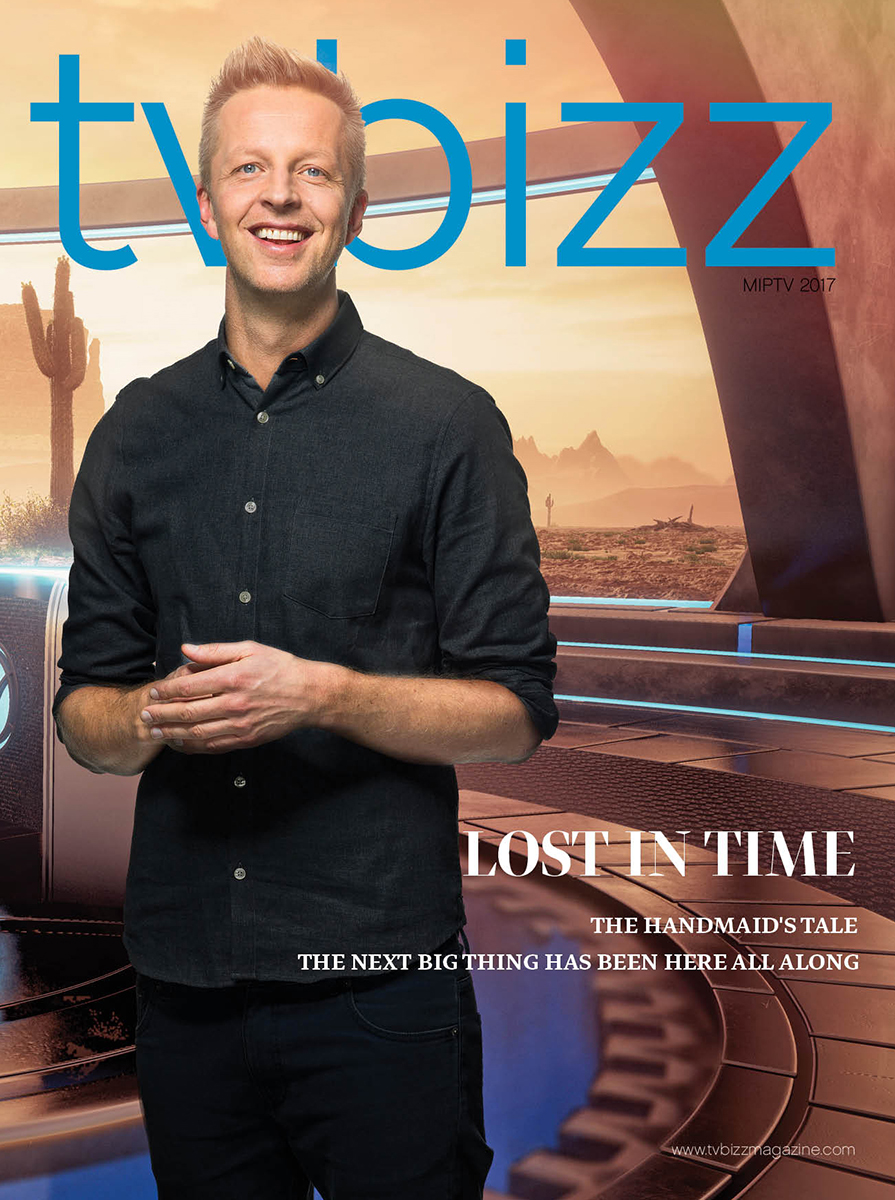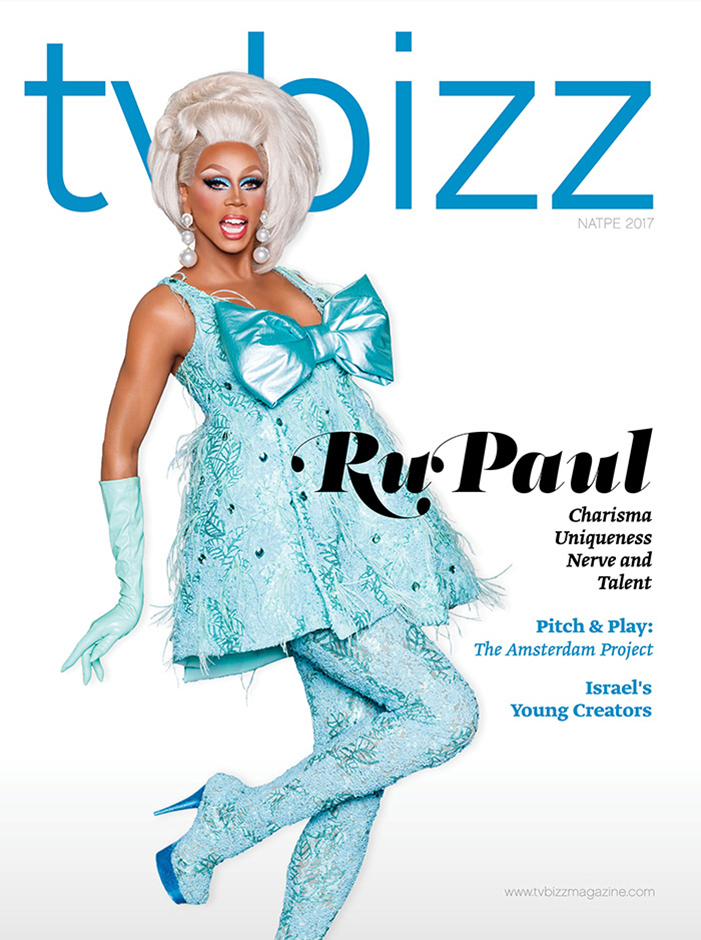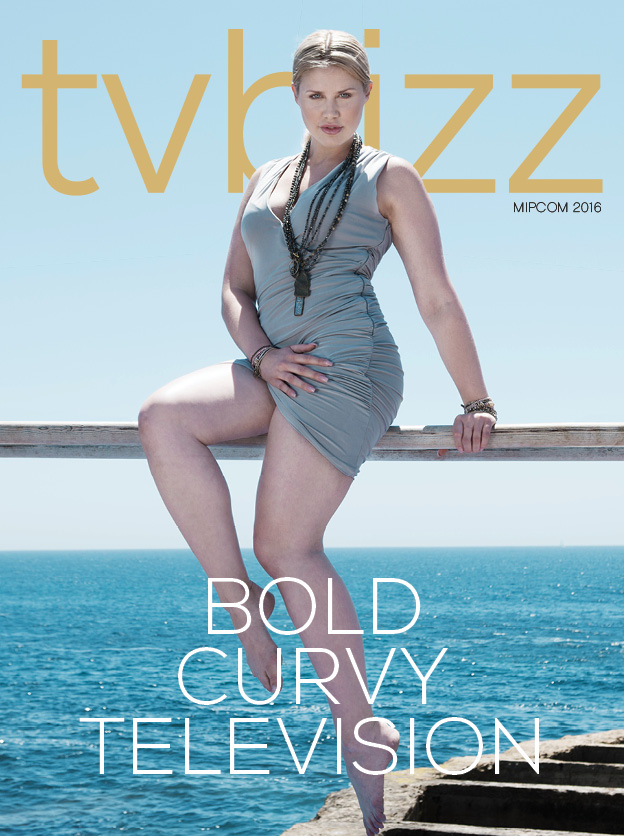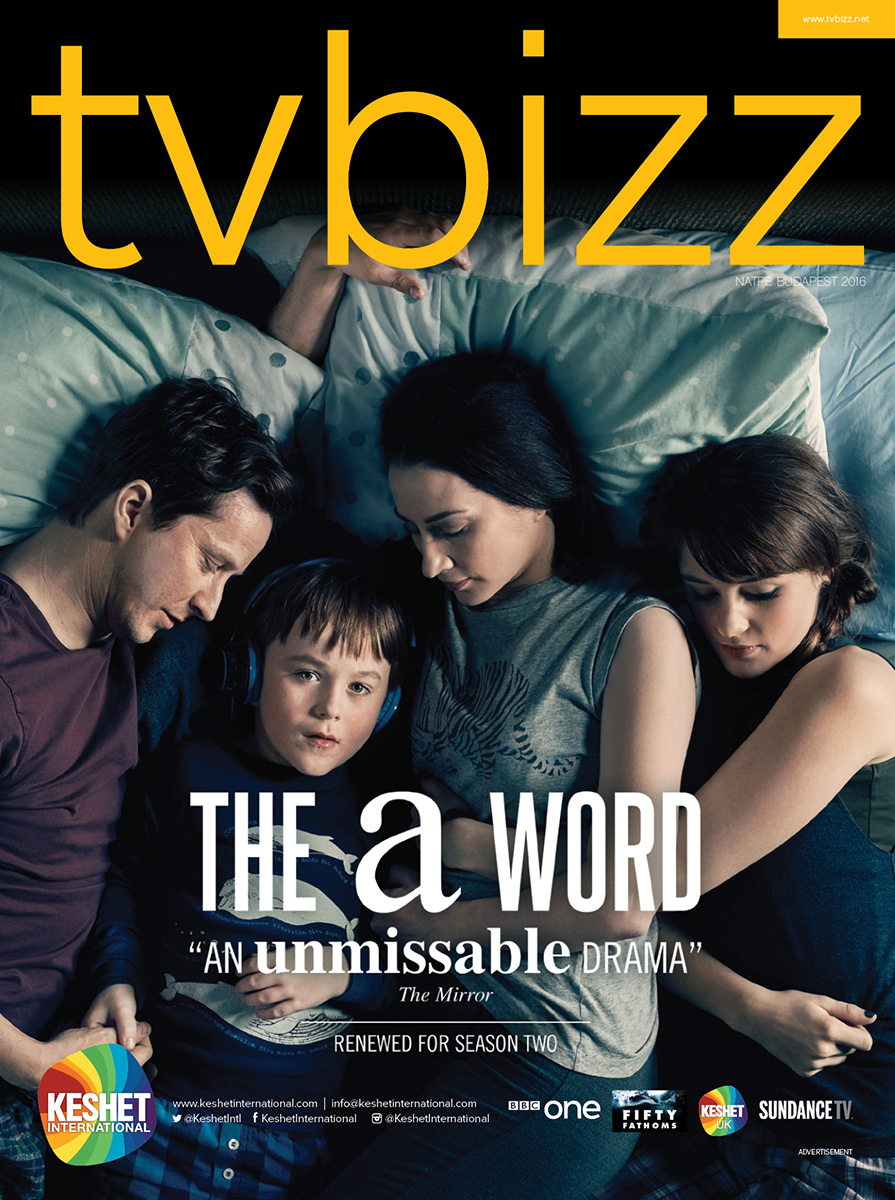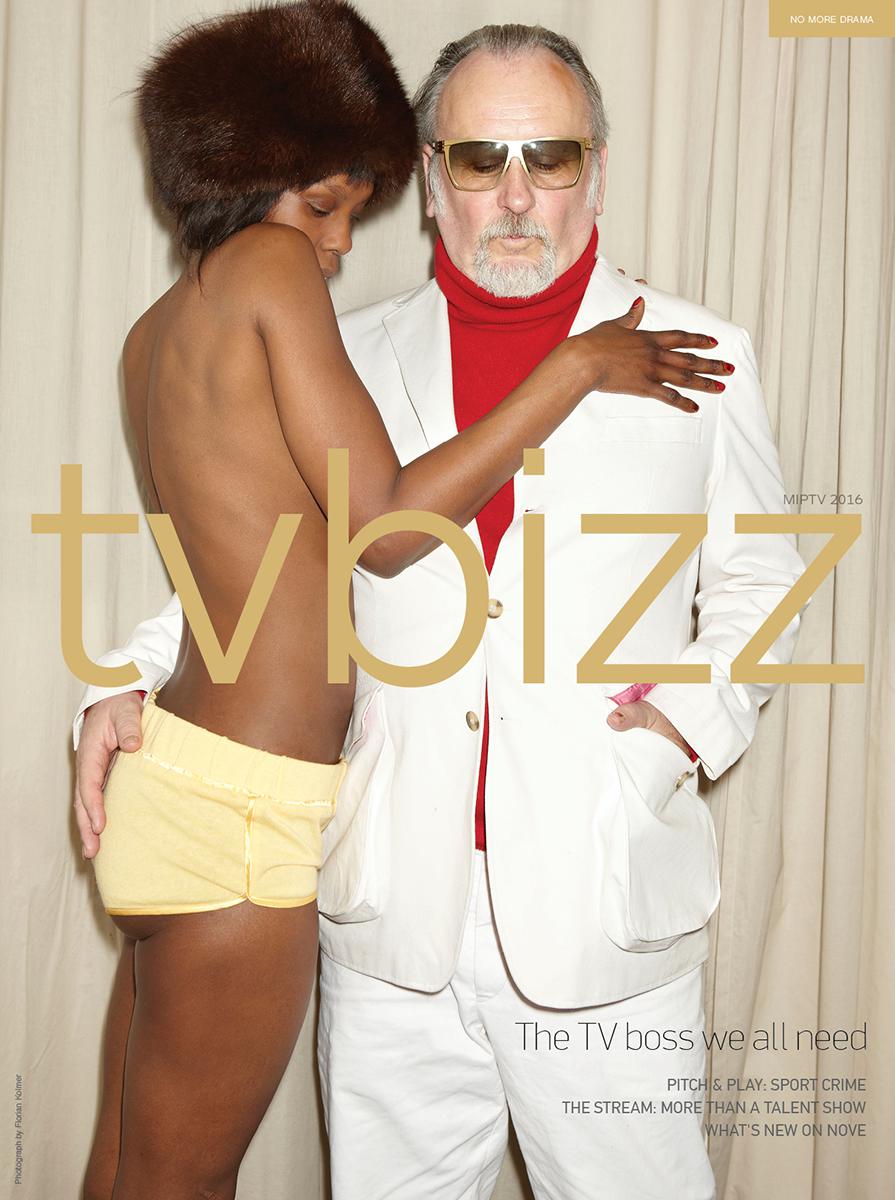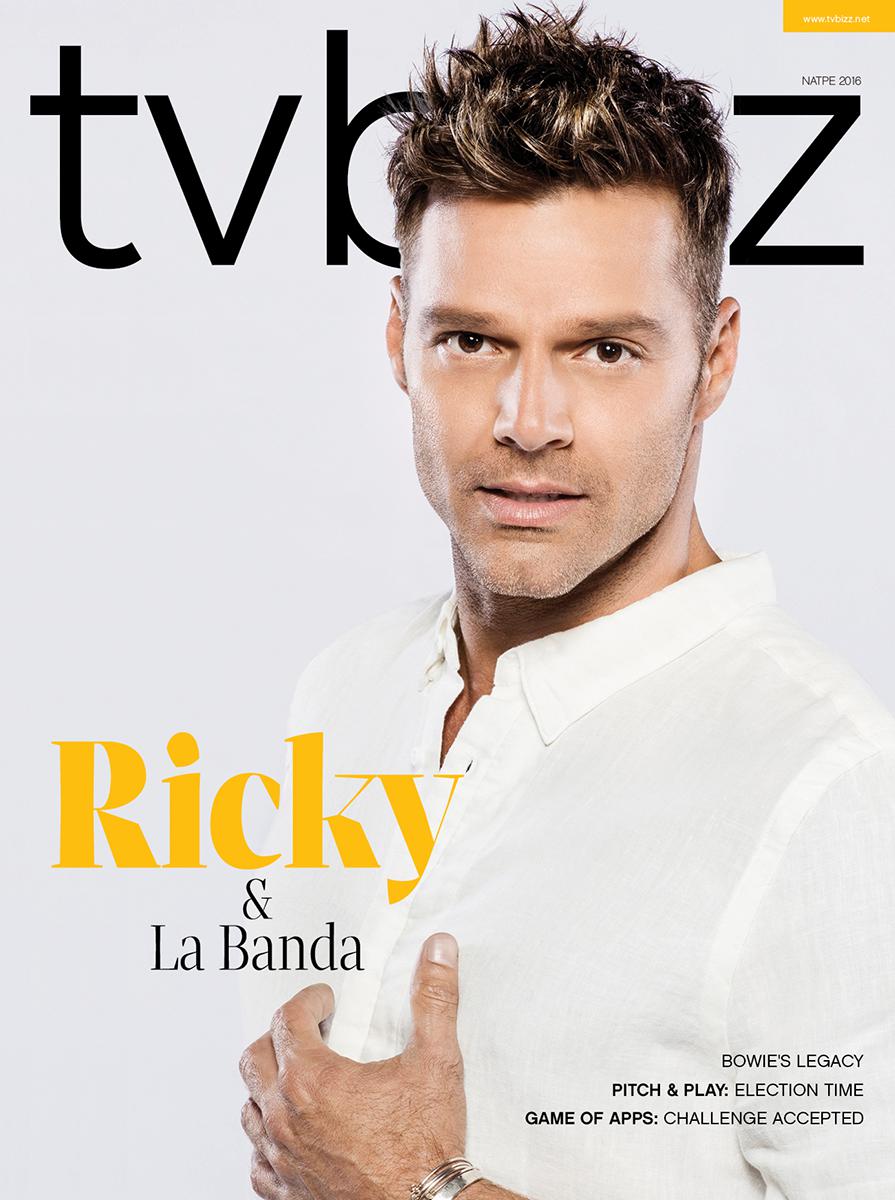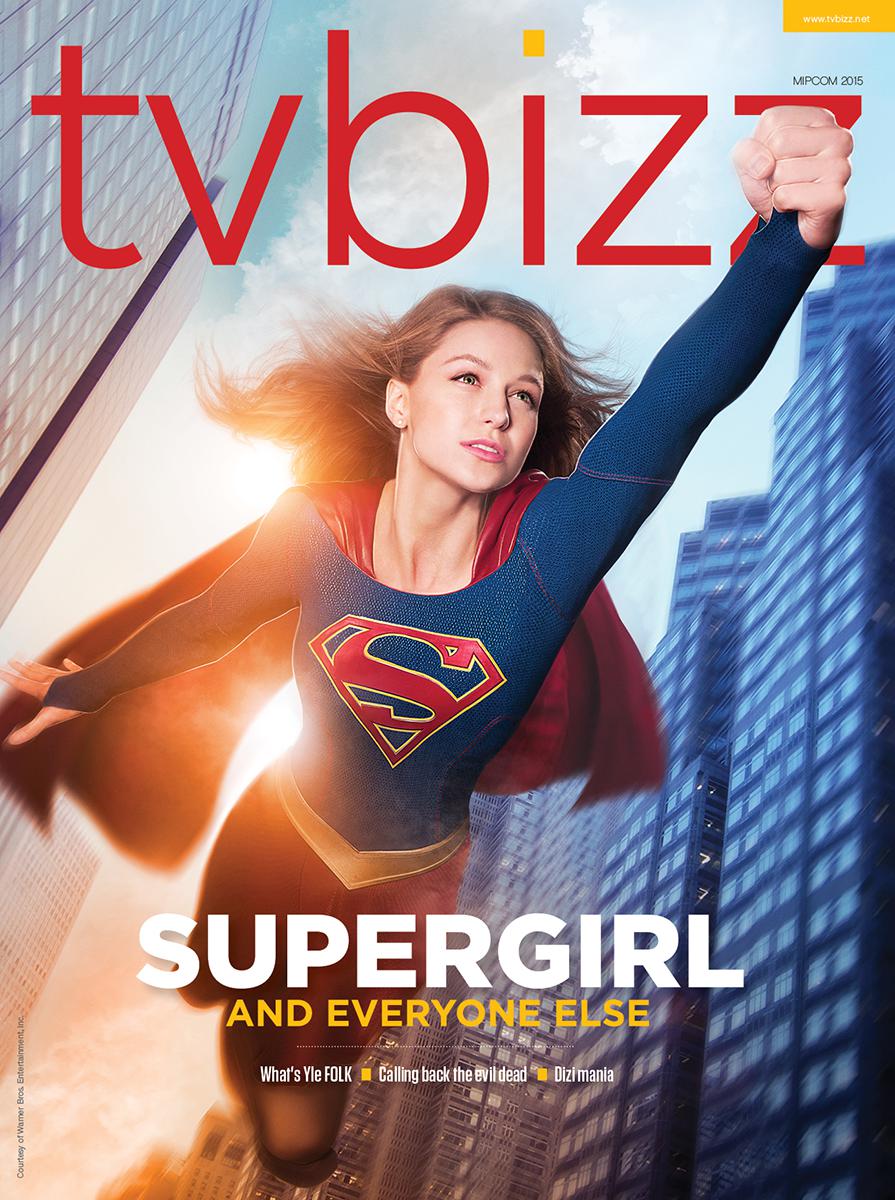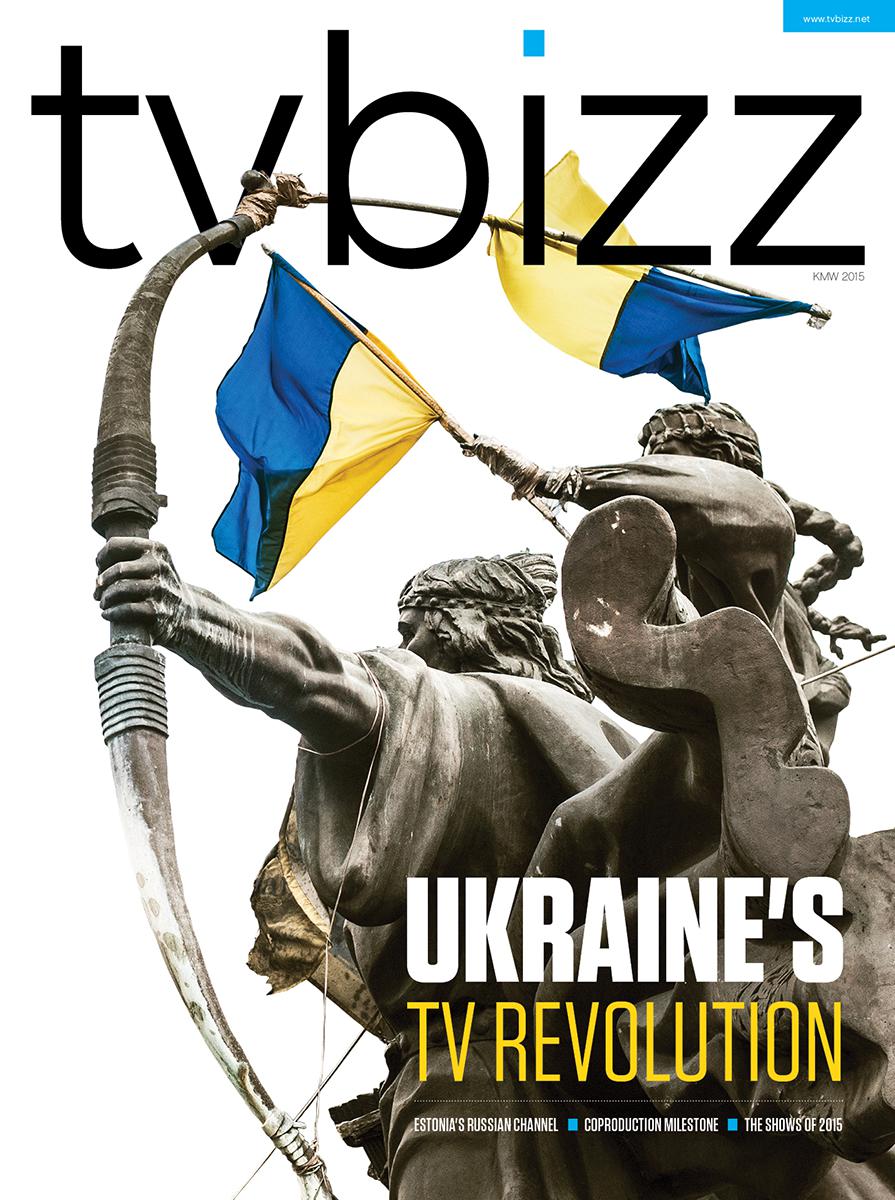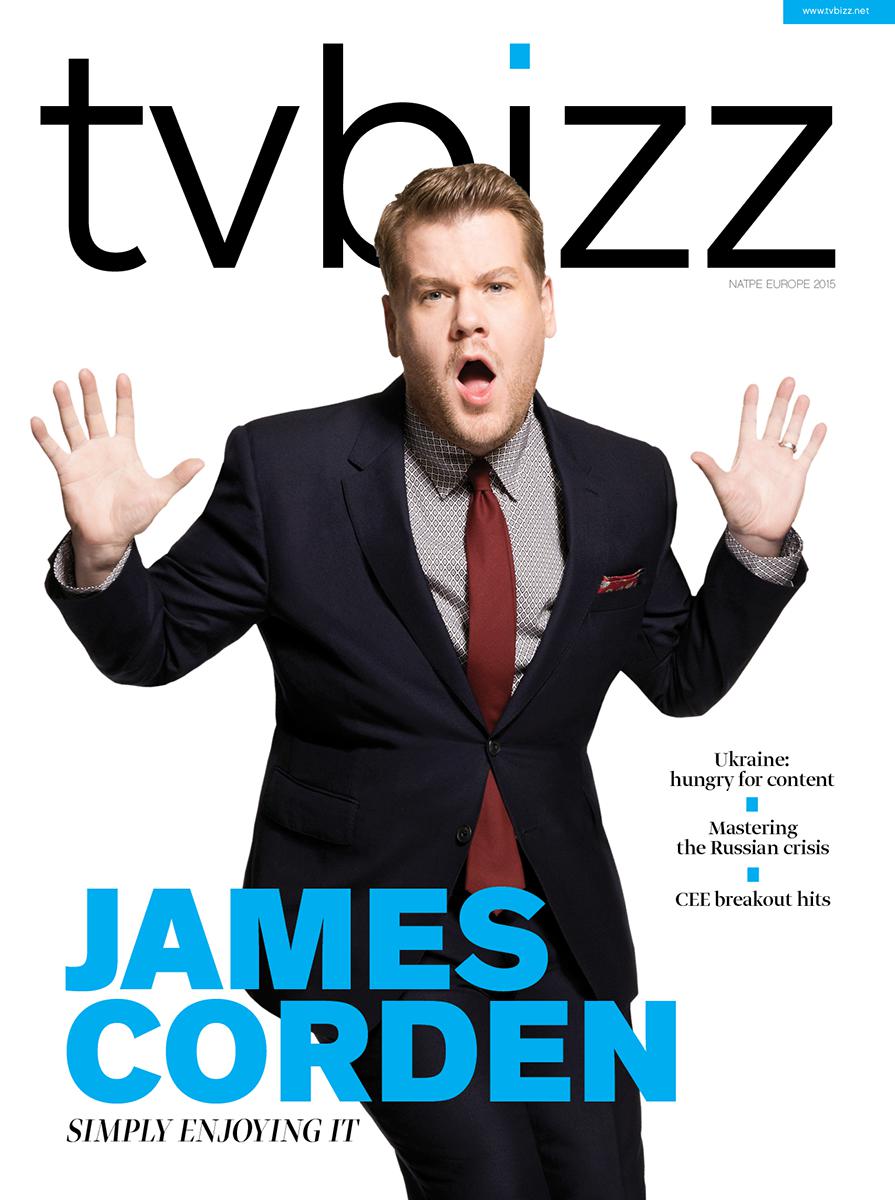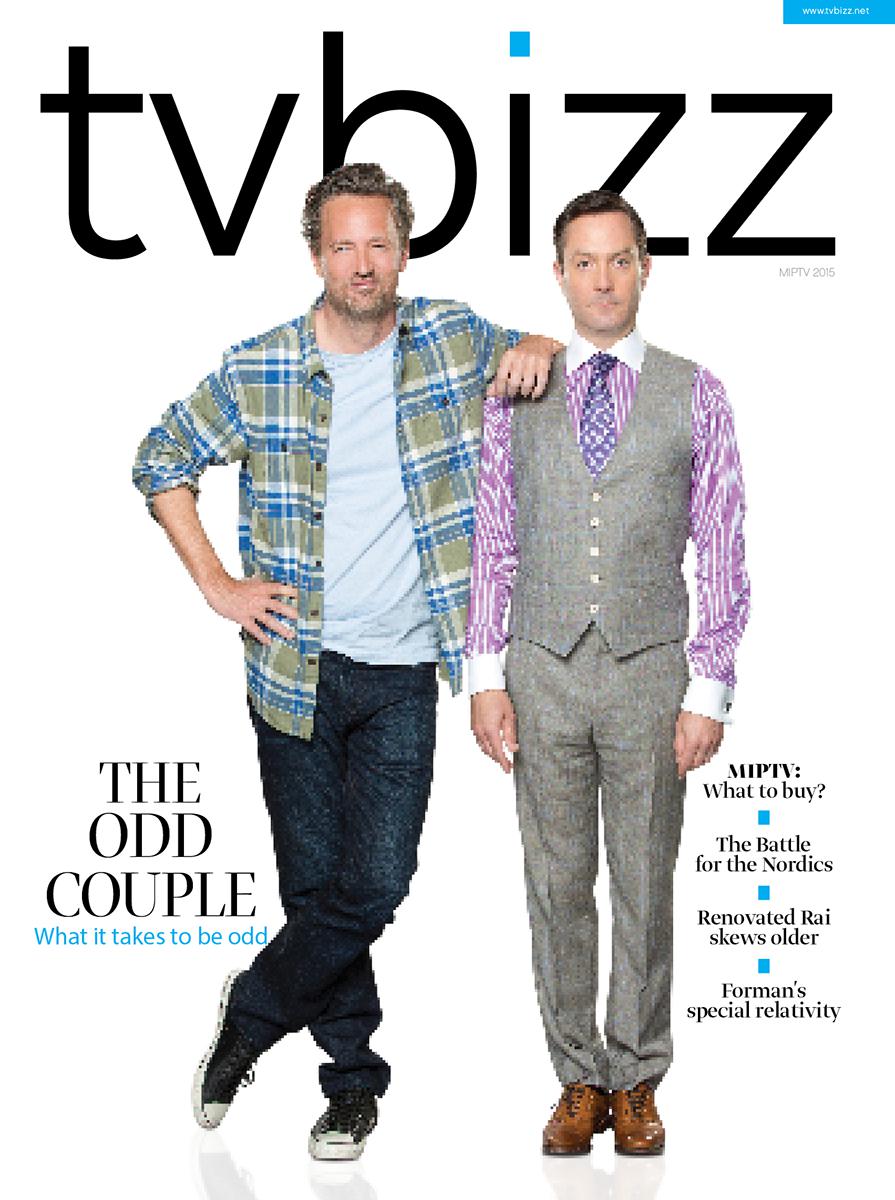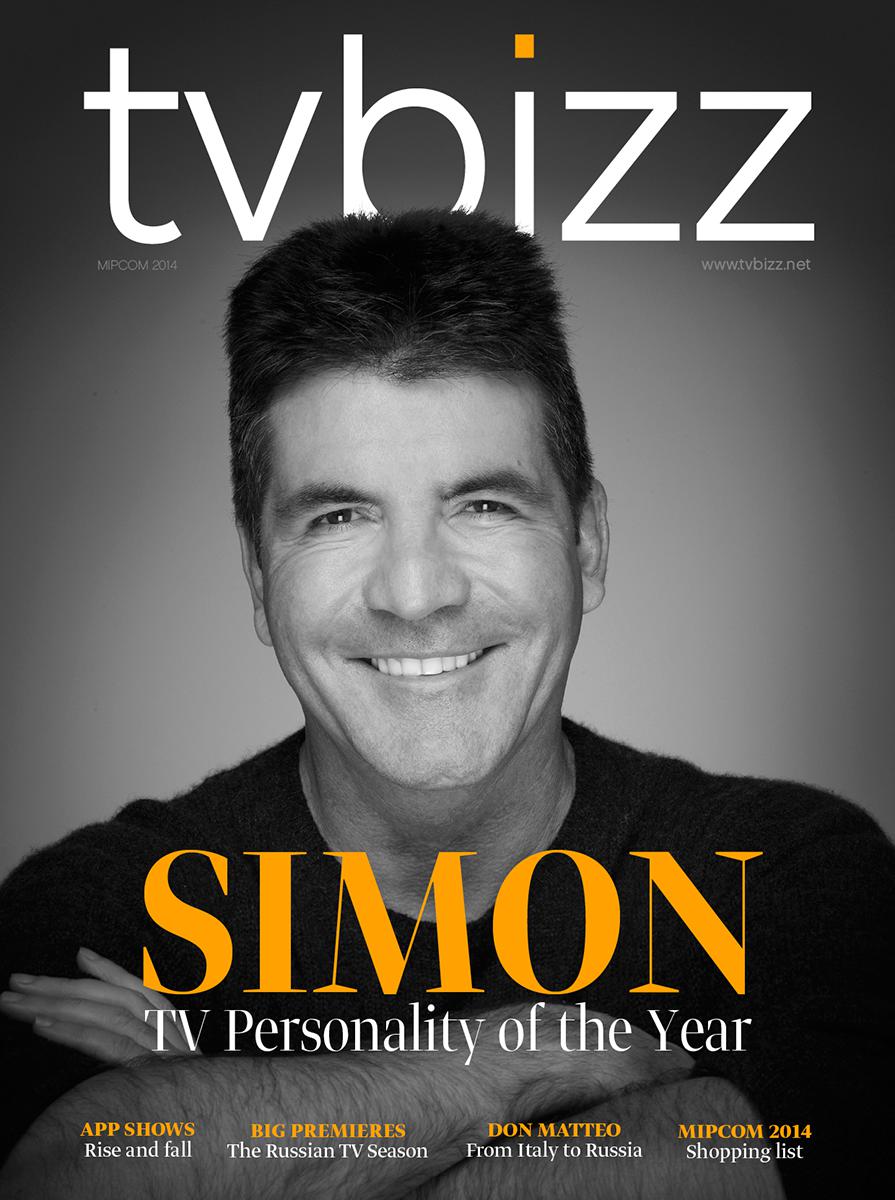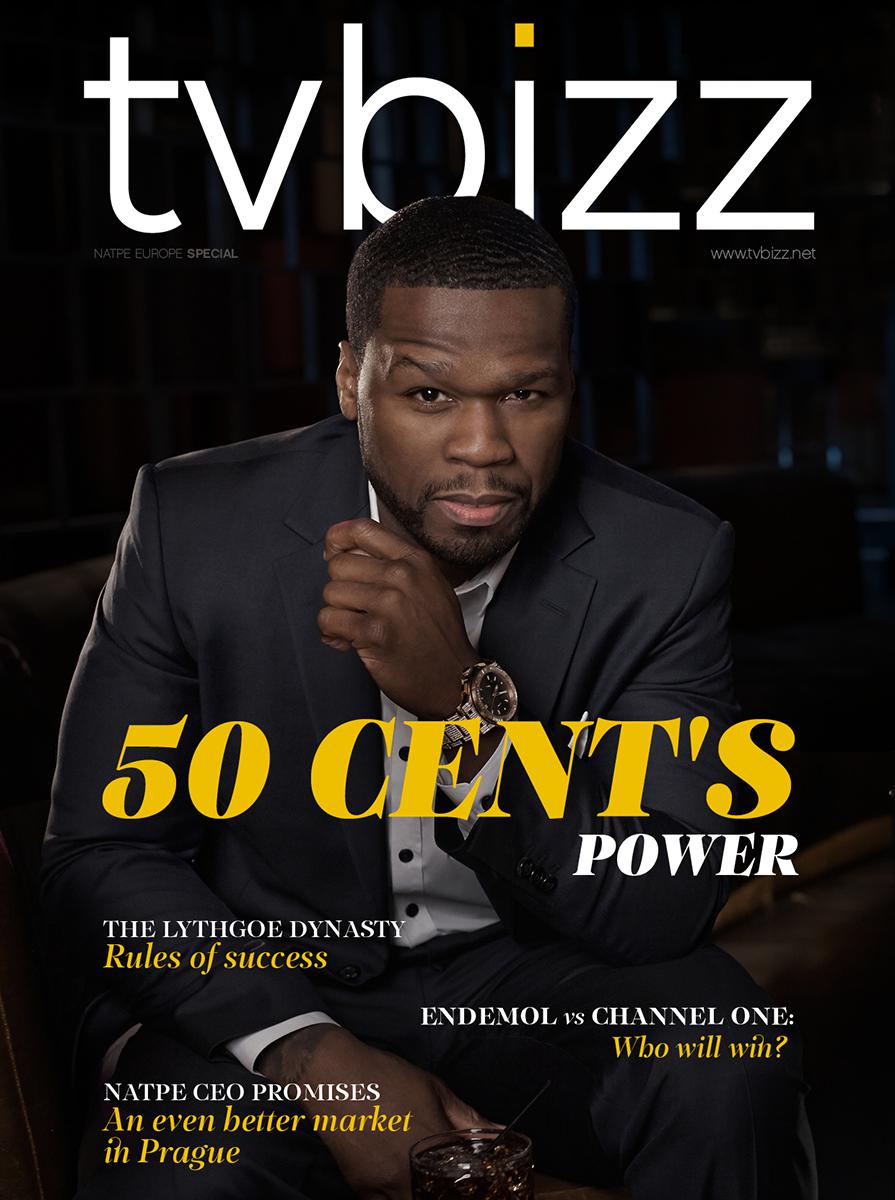Winners Talk: "The Seed" #MCTVF
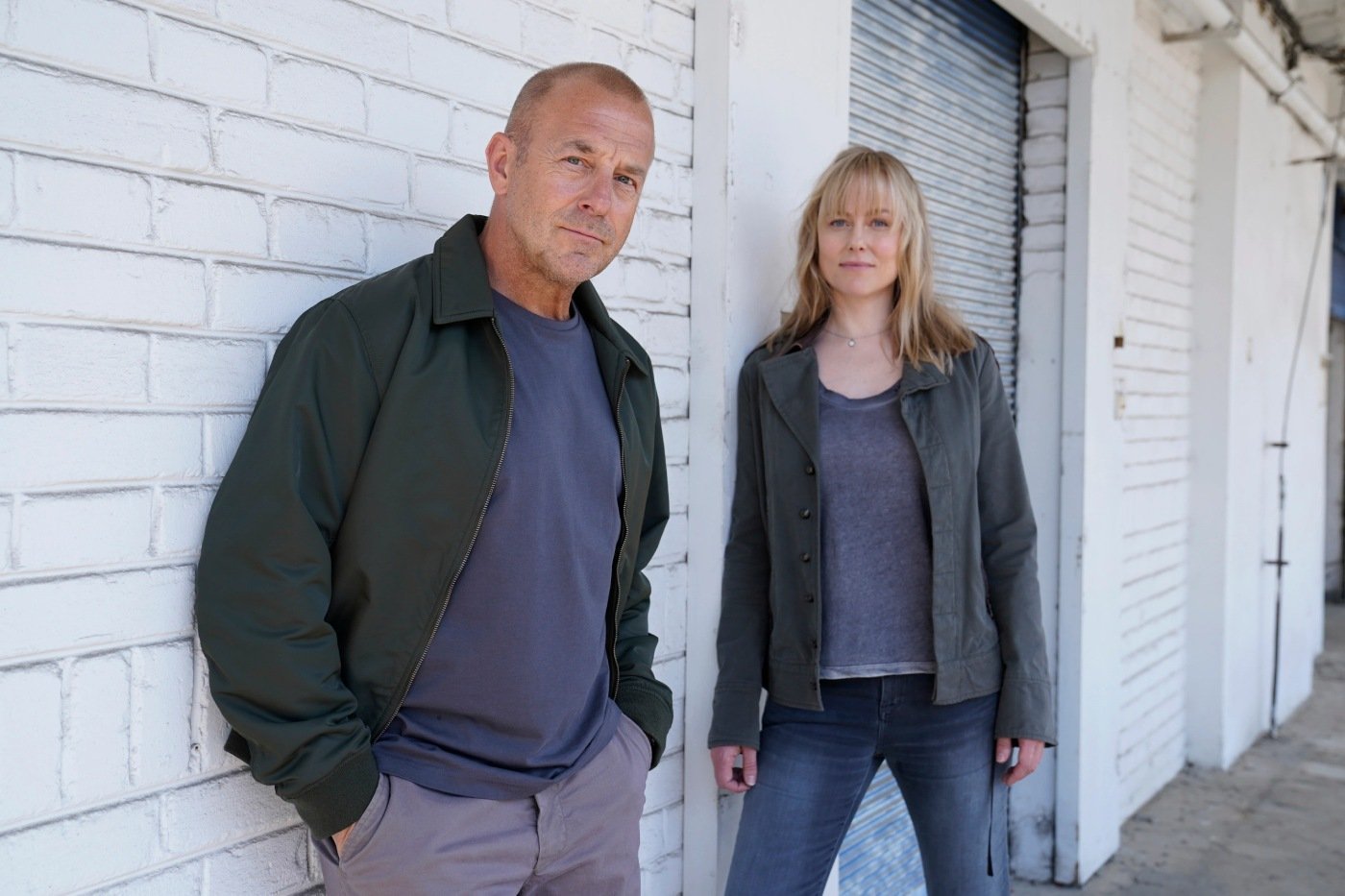
One of the big winners at this year's Monte-Carlo TV Festival was German-Norwegian co-production "The Seed" ("Die Saat"). The environmental 6-episode thriller which was shot in Germany, Norway, the Czech Republic and Brussels is a co-production between Odeon Fiction, Mia Film, Rein Film, ARD Degeto and NRK and is distributed internationally by Leonine Studios, won two Golden Nymph awards: Best Creation and the BetaSeries Public Prize. The series is expected to premiere in December.
"The Seed" opens with German inspector Max Grosz setting off with the Norwegian policewoman Thea Koren to Spitsbergen in search of his missing nephew. In the process, they delve deeper and deeper into a web of intrigue and political interests, because the disappearance is apparently connected to the controversial takeover of an agricultural company.
TVBIZZ's Yako Molhov talked to the two main leads Ingrid Bolso Berdal and Heino Ferch, director Alexander Dierbach and series producer Britta Meyermann who revealed to journalists at the Festival details about the story and the issues that the thriller touches on, the shooting locations as well as the financing of the project.
Berdal and Ferch shared that "The Seed" was shot a year ago (May until middle of August 2022) and the story was so real, present and complex. The actor drew parallels between the storyline and what has happened in Ukraine when the Russians blocked the export of grain. The series explores exactly this subject - who is responsible and how are people getting the food. Berdal added that it felt really meaningful as an actor getting to do a story like this in the chaotic situation we have on this planet - it is as if the fight for resources is getting more and more focused and concentrated and also what people are willing to do in order to get profit and it is mind-boggling how the world is run. The show uncovers how business and politics go hand-in-hand. "At the same time it was nice to have a story that we also tell something profound thru our characters, where they come from tough situations in the past, to have in this brutal corporate world which is cynical to have a story where two people try to get to know each other and show their humanity."
The two actors commented that they had meetings before the start of the series, discussions between the director and the producers and the scriptwriters, the idea for the series belongs to Christian Jeltsch who came up with it 8 years ago. They had the subject worked on during that time and before shooting there were discussions about the characters, with lots of ideas about them and until we started everything was more or less fixed, we didn't change many things. We brought different levels together: the emotional, the crime, looking for the guy, the politics, the economy and the people that pushed all these people in Brussels and elsewhere to get what they want.
Regarding the filming in Svalbard (where the Global Seed Vault is located in Norway), Berdal admitted she has never been there prior, even though she is Norwegian. It was magnificent to see the nature and to see the sea and experience that type of lights. They didn't get inside the real vault since access is very restricted. There were also a lot of tourists coming - four times per day. The actors shot the series last year when the pandemic was not yet over and had tests every day. Ferch said that the island had 2000 people living there and since it was a mining island, it gave him the feeling of the Wild West, a very thrilling atmosphere. Touching on the subject of politics and multinational companies, Berdal commented that it is interesting how people are not being honest and are exploiting others, all that bad stuff that is happening, what are we doing, how can we exploit the world in such a way. Shooting in Svalbard was joy and sadness because of what we are doing. "Viktor - the nephew of Max played by Jonathan Berlin - is a good example of the young people who feel that wrongness and what young people can do these days. They have no power yet to change the things into laws but they do much with their emotions. The show emphasizes young people's struggle to get a grip of what to do with the status quo."
Ferch noted that there is power to drama - you need to catch people, to take them with leading actors, with leading dramas. Food can be a very dry science, but drama provides personal stories, the actor very much liked the storyline of the two ladies in Brussels, living with a guy, the ladies are also struggling with their relationship, the love of two women and a guy who is married to one of them.
In terms of the feedback at the Festival: both actors said they got a great response from the audience. They feel the same - an important subject told with emotions and each character has their own drama, they followed the characters, they are interested in a thing that has such a big range that comes step by step.
TVBIZZ also talked to the director of the series Alexander Dierbach who revealed details about the shooting process which took place in Norway, Germany, the Czech Republic and also in Belgium for the EU Commission shots. The crew spent around 40 days in Czechia and it was really awesome to work there because they are very professional teams. They shot several interior scenes from Norway and Belgium and it was strange to present freezing Norway when the temperatures in the CR were 35 degrees at the time. The production then moved for 12 days to Munich. The special thing was shooting in Svalbard which is such a special place, with 24 hours daylight and it was strange for the crew. When asked about why choosing the Czech Republic in particular Dierbach noted that the main reason was budgetwise - there they have a funding system, a good government tax incentive. Also in the film industry there are not so many crew members so they have to decide which country, where can you get the best crew. Regarding working on co-productions, with many partners involved, the director commented that now you have one or two executive producers who are your partners and he listens and works with them. The EP of the series Britta Meyerman recieves the feedback, opinions and needs of the co-production partners.
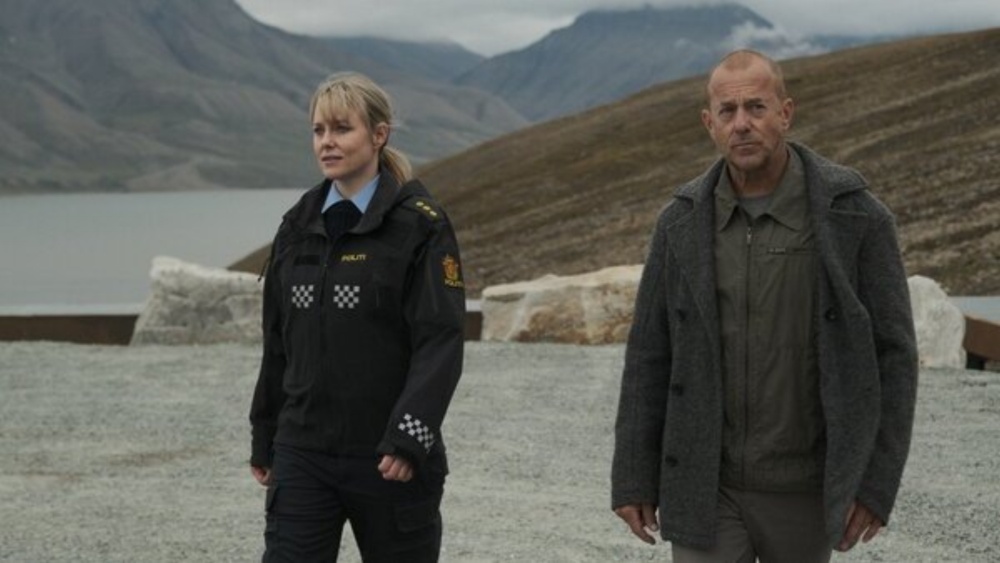
For Dierbach the main point was to create a story for a big audience where they highlight one of the big problems with the food supply. It's a strange, dramatic crime story already - major companies and politicians are doing some things which is already a plot, "I was totally hooked". They started with Viktor's voice telling about the world problem and the fight against some major companies and then viewers meet the classical characters who dive deep into the story. The idea was to create a European story, a story for the world, that's why we went from Munich, to Belgium, to Norway.
Executive Producer Britta Meyermann revealed the development process for the series, with head writer Christian Jeltsch coming up with the idea 7-8 years ago when he had read a story about a company - Blackwater - that broke into and robbed a seed vault in Syria and later he found that Blackwater was owned by Monsanto - the big agricultural company. He thought why is the company hiring people in order to break into seed vaults and that is how he started coming up with the story. Later he did research on the Svalbard Seed Vault which is one of the biggest in the world and where seeds are stored in case of doomsday. It coincided with the time when there was news about farmers in India killing themselves because they couldn't take care of their families; strangely, there were not many media reports even though this concerned all of us and it is not getting better because of the climate change. "We wanted to do a TV series, not a documentary on the subject, Christian brought in a Norwegian colleague and they created this world of characters, politics; etc", the EP commented.
The series combines three main plots: climate/food crisis, the missing nephew and the politics - it was one of the issues for the pilot episode since there were so many different worlds that they needed to introduce. You need to be invested in all the characters so it was a challenge in the script process and visually the director did a great job, you immediately get into it. "We tried to focus above all on the personal story because this is part of the story that needs to get the viewer invested."
In terms of funding the project - "everything started with us from Germany, ARD was the first broadcaster on board and then they reached out to Norway - NRK. Then the shooting happened during the covid time and some financing and soft money were not sure and we knew we wanted to shoot in the Czech Republic because they have the greatest locations and very reliable tax incentive. Brussels was used only for establishing shots. We got funds from the Bavarian film fund, they supported us very generously. We got money from the German Motion Picture Fund, from the Czech tax incentive and also a small part from a Norwegian fund. The co-production part was much easier than I expected because the vision of the show was more or less clear in the beginning and they bought into this vision. We also had Leonine Studios on board who financed quite a bit, our sales agent who is selling the show. They believed and hoped we will do a great show."
Meyermann added that Odeon Fiction is a big production company, with 20 producers and co-productions play an important role in their strategy, they are trying to do more co-productions now, in the last year it has picked up a lot - many partners are trying to collaborate because the budgets are getting higher but the funds are not getting bigger. People from other countries are coming and creating stories that have German elements also. Nowadays it feels more natural to tell stories that are crossing borders and it is always important to include a team that knows the respective market and culture.
The EP also revealed that Odeon is working on a new German project with a storyline set in Estonia which will be partly shot there. The company also has a German-Italian project that is setting off as well as another German-Scandinavian project. "We are always open to more projects from Central and Eastern Europe because there is amazing storytelling there and great shows have been coming from CEE lately. With countries like Estonia and Lithuania it's mostly about shooting and using the tax incentives because the broadcasters there just don't have that money".
"The Seed" opens with German inspector Max Grosz setting off with the Norwegian policewoman Thea Koren to Spitsbergen in search of his missing nephew. In the process, they delve deeper and deeper into a web of intrigue and political interests, because the disappearance is apparently connected to the controversial takeover of an agricultural company.
TVBIZZ's Yako Molhov talked to the two main leads Ingrid Bolso Berdal and Heino Ferch, director Alexander Dierbach and series producer Britta Meyermann who revealed to journalists at the Festival details about the story and the issues that the thriller touches on, the shooting locations as well as the financing of the project.
Berdal and Ferch shared that "The Seed" was shot a year ago (May until middle of August 2022) and the story was so real, present and complex. The actor drew parallels between the storyline and what has happened in Ukraine when the Russians blocked the export of grain. The series explores exactly this subject - who is responsible and how are people getting the food. Berdal added that it felt really meaningful as an actor getting to do a story like this in the chaotic situation we have on this planet - it is as if the fight for resources is getting more and more focused and concentrated and also what people are willing to do in order to get profit and it is mind-boggling how the world is run. The show uncovers how business and politics go hand-in-hand. "At the same time it was nice to have a story that we also tell something profound thru our characters, where they come from tough situations in the past, to have in this brutal corporate world which is cynical to have a story where two people try to get to know each other and show their humanity."
The two actors commented that they had meetings before the start of the series, discussions between the director and the producers and the scriptwriters, the idea for the series belongs to Christian Jeltsch who came up with it 8 years ago. They had the subject worked on during that time and before shooting there were discussions about the characters, with lots of ideas about them and until we started everything was more or less fixed, we didn't change many things. We brought different levels together: the emotional, the crime, looking for the guy, the politics, the economy and the people that pushed all these people in Brussels and elsewhere to get what they want.
Regarding the filming in Svalbard (where the Global Seed Vault is located in Norway), Berdal admitted she has never been there prior, even though she is Norwegian. It was magnificent to see the nature and to see the sea and experience that type of lights. They didn't get inside the real vault since access is very restricted. There were also a lot of tourists coming - four times per day. The actors shot the series last year when the pandemic was not yet over and had tests every day. Ferch said that the island had 2000 people living there and since it was a mining island, it gave him the feeling of the Wild West, a very thrilling atmosphere. Touching on the subject of politics and multinational companies, Berdal commented that it is interesting how people are not being honest and are exploiting others, all that bad stuff that is happening, what are we doing, how can we exploit the world in such a way. Shooting in Svalbard was joy and sadness because of what we are doing. "Viktor - the nephew of Max played by Jonathan Berlin - is a good example of the young people who feel that wrongness and what young people can do these days. They have no power yet to change the things into laws but they do much with their emotions. The show emphasizes young people's struggle to get a grip of what to do with the status quo."
Ferch noted that there is power to drama - you need to catch people, to take them with leading actors, with leading dramas. Food can be a very dry science, but drama provides personal stories, the actor very much liked the storyline of the two ladies in Brussels, living with a guy, the ladies are also struggling with their relationship, the love of two women and a guy who is married to one of them.
In terms of the feedback at the Festival: both actors said they got a great response from the audience. They feel the same - an important subject told with emotions and each character has their own drama, they followed the characters, they are interested in a thing that has such a big range that comes step by step.
TVBIZZ also talked to the director of the series Alexander Dierbach who revealed details about the shooting process which took place in Norway, Germany, the Czech Republic and also in Belgium for the EU Commission shots. The crew spent around 40 days in Czechia and it was really awesome to work there because they are very professional teams. They shot several interior scenes from Norway and Belgium and it was strange to present freezing Norway when the temperatures in the CR were 35 degrees at the time. The production then moved for 12 days to Munich. The special thing was shooting in Svalbard which is such a special place, with 24 hours daylight and it was strange for the crew. When asked about why choosing the Czech Republic in particular Dierbach noted that the main reason was budgetwise - there they have a funding system, a good government tax incentive. Also in the film industry there are not so many crew members so they have to decide which country, where can you get the best crew. Regarding working on co-productions, with many partners involved, the director commented that now you have one or two executive producers who are your partners and he listens and works with them. The EP of the series Britta Meyerman recieves the feedback, opinions and needs of the co-production partners.

For Dierbach the main point was to create a story for a big audience where they highlight one of the big problems with the food supply. It's a strange, dramatic crime story already - major companies and politicians are doing some things which is already a plot, "I was totally hooked". They started with Viktor's voice telling about the world problem and the fight against some major companies and then viewers meet the classical characters who dive deep into the story. The idea was to create a European story, a story for the world, that's why we went from Munich, to Belgium, to Norway.
Executive Producer Britta Meyermann revealed the development process for the series, with head writer Christian Jeltsch coming up with the idea 7-8 years ago when he had read a story about a company - Blackwater - that broke into and robbed a seed vault in Syria and later he found that Blackwater was owned by Monsanto - the big agricultural company. He thought why is the company hiring people in order to break into seed vaults and that is how he started coming up with the story. Later he did research on the Svalbard Seed Vault which is one of the biggest in the world and where seeds are stored in case of doomsday. It coincided with the time when there was news about farmers in India killing themselves because they couldn't take care of their families; strangely, there were not many media reports even though this concerned all of us and it is not getting better because of the climate change. "We wanted to do a TV series, not a documentary on the subject, Christian brought in a Norwegian colleague and they created this world of characters, politics; etc", the EP commented.
The series combines three main plots: climate/food crisis, the missing nephew and the politics - it was one of the issues for the pilot episode since there were so many different worlds that they needed to introduce. You need to be invested in all the characters so it was a challenge in the script process and visually the director did a great job, you immediately get into it. "We tried to focus above all on the personal story because this is part of the story that needs to get the viewer invested."
In terms of funding the project - "everything started with us from Germany, ARD was the first broadcaster on board and then they reached out to Norway - NRK. Then the shooting happened during the covid time and some financing and soft money were not sure and we knew we wanted to shoot in the Czech Republic because they have the greatest locations and very reliable tax incentive. Brussels was used only for establishing shots. We got funds from the Bavarian film fund, they supported us very generously. We got money from the German Motion Picture Fund, from the Czech tax incentive and also a small part from a Norwegian fund. The co-production part was much easier than I expected because the vision of the show was more or less clear in the beginning and they bought into this vision. We also had Leonine Studios on board who financed quite a bit, our sales agent who is selling the show. They believed and hoped we will do a great show."
Meyermann added that Odeon Fiction is a big production company, with 20 producers and co-productions play an important role in their strategy, they are trying to do more co-productions now, in the last year it has picked up a lot - many partners are trying to collaborate because the budgets are getting higher but the funds are not getting bigger. People from other countries are coming and creating stories that have German elements also. Nowadays it feels more natural to tell stories that are crossing borders and it is always important to include a team that knows the respective market and culture.
The EP also revealed that Odeon is working on a new German project with a storyline set in Estonia which will be partly shot there. The company also has a German-Italian project that is setting off as well as another German-Scandinavian project. "We are always open to more projects from Central and Eastern Europe because there is amazing storytelling there and great shows have been coming from CEE lately. With countries like Estonia and Lithuania it's mostly about shooting and using the tax incentives because the broadcasters there just don't have that money".



